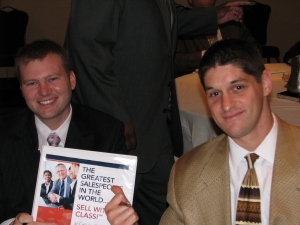 Ok, before you lynch me for getting out of your comfort zone, give me a chance to explain. Children begin life with only a fear of heights. The world around them teaches them them to draw between the lines, not to touch things that are hot (many things are hot), to walk in a line with all the other kids, to be quiet, to keep their hands to themselves, etc. They also learn that a fire or stove burner is hot and not talk to strangers, get in their cars, or take a walk with them.
Ok, before you lynch me for getting out of your comfort zone, give me a chance to explain. Children begin life with only a fear of heights. The world around them teaches them them to draw between the lines, not to touch things that are hot (many things are hot), to walk in a line with all the other kids, to be quiet, to keep their hands to themselves, etc. They also learn that a fire or stove burner is hot and not talk to strangers, get in their cars, or take a walk with them.
But, here’s where it begins to get a little dicey … “Don’t make a mistake!” If you do, someone will announce the failure. If you drop your lunchroom tray, miss a stop as a goalie, get a C on your report card, or drop a fly ball you will suffer. Boys and girls gather together in groups and decide you are different and should be excluded. You’re slow, or overweight, or hard of hearing, or with glasses you look “four-eyed.”
Mentoring, fathering, and parenthood deceased further in the lives of kids during the lst 20 years. Affirmation was hard to find. Very few had time to listen to them. Sometimes it was easier to quit and to avoid breaking through to new growth when change, achievement, or work was hard. Their cheerleaders during or after college said, “Grab a beer, chill, take it easy, watch some sports, etc.”
So, as we grow from childhood into adulthood and take our places as sales professionals, various fears take residence with our spirit. For good reasons, we watch where we go, what we touch, how we appear, or we simply stay behind self-imposed lines and fences. We lower our ambitions to stay safe or we strive to win for the sake of fitting in, being with the in-crowd, or to just keep from being noticed in a bad way. Winning or being smart makes us OK – acceptable. We crave recognition or achievement or knowledge to keep us from the world’s definition of failures. We learn to like ourselves IF ONLY …
I wonder how much sales performance would increase if sales reps felt valued, encouraged, and coaching was customized to their individual needs.
I wonder how much sales performance would increase if the culture was one for all and all for one. I wonder how much sales performance would increase if the focus from leadership was finding and removing blockades to rep performance? I wonder how much sales performance would increase if reps respected their leaders and the their challenges. I wonder how much sales performance would increase if reps were listened to?
I wonder how much sales performance would increase if leaders believed, “Its all about them and their growth and their achievement – just as the company is all about satisfying customer needs and problems.”
Think about this, “What if today your reps had no fear of rejection or failure? What if they valued themselves, their company, their teammates, and their company?” What would happen? What would they do and how would they do it?
What if each of your reps could pick up the phone and call anyone at anytime and try to get in to see them as a salesperson. What if losing a deal only taught each rep a lesson that they used in their next attempt at winning a new account?
5 Ways to Love Your Salespeople
- Know your salespeople as individuals with different motivations, beliefs, needs, and problems. Conduct “Coaching or Foundation Interviews” where you listen and learn about them. Schedule these and do these when you are with them. LISTEN. DO NOT SPEAK. Find out their #1 motivator and how it is tied to a sales goal that will be emotional for them to reach.
- Coach them to discover, track and achieve sales, income, and employment goals important to them. Use great coaching questions to do this. LISTEN.
- Design and teach a sales process for your business and how to use sales tools and skills that move a lead to a qualified prospect to a sale-in-progress to a repeat customer.
- Teach them to track activity levels leading to sales results. Teach them how to change these ratios.
- Challenge their attitudes and beliefs with questions, more questions, and then your wisdom. For example, show them that a better lifestyle begins with wanting one and taking on the responsibility to provide it for their family. Each salesperson is different and it will vary what you challenge and help them grow into.
Do these five things with the belief that a sales rep can be better and can grow in their abilities, goal achievement skills, and strength. If you find that you do not believe in someone and that person does not produce above your minimum performance standard, let them go somewhere else with dignity. But, as long as you believe in a person, keep doing these 5 things. They will work IF you care about your people.
Be better leaders. All of us can. Lance.
